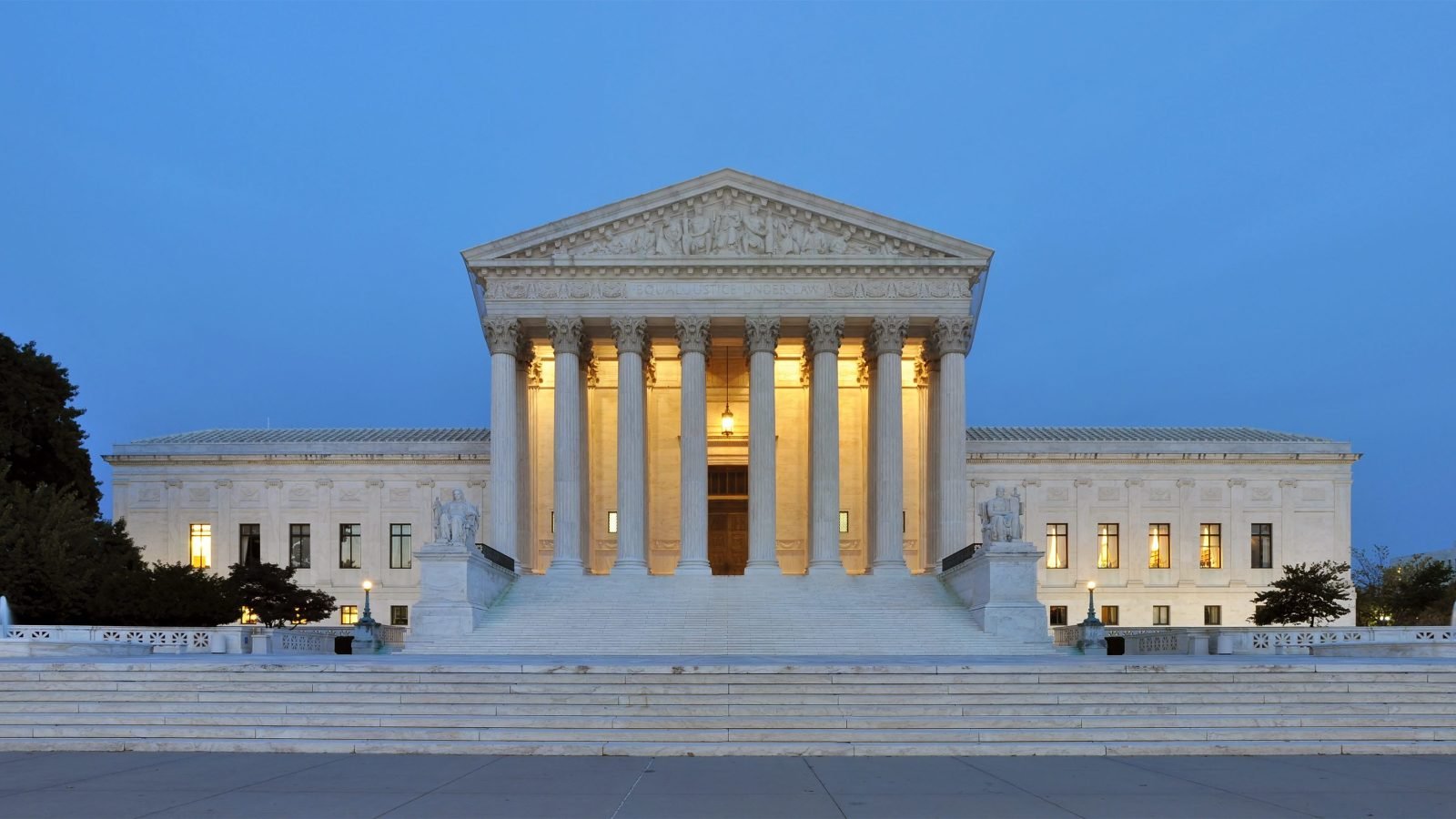Alright, so there’s a big Supreme Court showdown.
It’s all about Joseph Fischer who was there for the Capitol gathering back on Jan 6, 2021.
Now he’s facing an obstruction charge because they say he messed with the certification of Biden’s so-called win.
But here’s the kicker: the outcome of this could set the stage for what occurs with Trump and his court cases.
Looks like over 300 cases might get dismissed.
The Supreme Court heard a case called Fischer v. United States that holds the potential to dismiss some charges against over 300 individuals, including former President Donald Trump, on Tuesday.@KonnerMacTV explains: https://t.co/e8wL97G6Rk pic.twitter.com/RJnnyDLgVP
— The National Desk (@TND) April 17, 2024
Newsmax reports:
Conservative U.S. Supreme Court justices on Tuesday signaled skepticism toward an obstruction charge brought by the Justice Department against a Pennsylvania man in the 2021 Capitol attack – a case with possible implications for the prosecution of Donald Trump for trying to overturn his 2020 election loss.
ADVERTISEMENTThe justices heard arguments in Joseph Fischer’s appeal of a lower court’s ruling rejecting his attempt to escape a federal charge of corruptly obstructing an official proceeding – the congressional certification of President Joe Biden’s victory over Trump that the rioters sought to prevent on Jan. 6, 2021.
Trump, the Republican candidate challenging the Democratic president in the Nov. 5 U.S. election, faces the same charge in a criminal case brought against him last year by Special Counsel Jack Smith.
The conservative justices, who form a 6-3 majority, expressed concerns about the decision by federal prosecutors to apply to Fischer’s case an obstruction provision in the 2002 Sarbanes-Oxley Act – a law passed after the accounting fraud scandal at now-defunct energy company Enron. They grilled U.S. Solicitor General Elizabeth Prelogar about the law’s sweep, how it should be interpreted and whether the charge was necessary given the range of other criminal counts brought against Jan. 6 defendants.
Conservative Justice Neil Gorsuch appeared wary that a broad reading of the law could encroach on non-violent protests, emphasizing the maximum penalty of 20 years in prison under the obstruction charge.
“Would a sit-in that disrupts a trial, or access to a federal courthouse, qualify?” Gorsuch asked Prelogar. “Would a heckler in today’s (Supreme Court) audience qualify, or at the State of the Union address? Would pulling a fire alarm before a vote qualify?”
Conservative Chief Justice John Roberts seemed inclined to view the law narrowly, suggesting it might apply only to defendants who alter or destroy evidence – an interpretation that Fischer has asked the court to embrace.
Fischer is accused of charging at police guarding a Capitol entrance during the attack. Fischer, at the time a member of the North Cornwall Township police in Pennsylvania, got inside and pressed up against an officer’s riot shield as police attempted to clear rioters, according to prosecutors. He remained in the Capitol for four minutes before police pushed him out.
Jeffrey Green, a lawyer for Fischer, said prosecutors had misapplied the “Enron-driven evidence-tampering statute” to his client’s case.
“Attempting to stop a vote count or something like that is a very different act than actually changing a document or altering a document,” Green told the justices.
Liberal Justices Sonia Sotomayor and Elena Kagan challenged Green’s narrow view of the law, suggesting that Congress had aimed to craft an expansive statute.
ADVERTISEMENT“They wanted to cover every base,” Sotomayor told Green.
Conservative Justice Brett Kavanaugh asked Prelogar why the other charges filed against Fischer, including assault and disorderly and disruptive conduct, were not “good enough” for prosecutors.
Other charges do not fully capture the fact that Fischer “wanted to intimidate Congress,” Prelogar responded.
ABC News adds:
The Supreme Court on Tuesday appeared divided over whether the federal government had properly charged hundreds of alleged Jan. 6 rioters with felony obstruction, with several justices voicing concern that prosecutors’ broad interpretation of a financial crimes law could be weaponized against political protests.
The high-stakes case, brought by a former Pennsylvania police officer facing charges for his alleged conduct at the Capitol in 2021, could upend the convictions and sentences of more than 300 defendants — and could also potentially invalidate two of the four charges against former President Donald Trump brought by special counsel Jack Smith.
At issue in the case of Fischer v. United States is whether the Sarbanes-Oxley Act of 2002, enacted in the wake of the Enron scandal to prevent the destruction of evidence in financial crimes, can be used against alleged participants in the events of Jan. 6, 2021, which disrupted congressional certification of electoral votes from the 2020 presidential election.
Joseph Fischer was a participant in the “Save America” rally on Jan. 6 who faces prosecution for allegedly being part of the crowd that entered the Capitol as Congress was attempting to certify the 2020 election results.
ADVERTISEMENTThe statute carries a 20-year maximum sentence, though most Jan. 6 defendants have received far more lenient penalties in addition to being charged with other, related crimes.
The court could uphold lower court rulings that affirmed the government’s broad interpretation of the law, or it could narrow the obstruction statute in some way or otherwise make clear it doesn’t apply to the circumstances of Jan. 6.
A decision in the case is expected by the end of June.
Two and a half months away before a decision is made?
Why do I have a feeling that things are going to get pretty intense in the meantime?




Join the conversation!
Please share your thoughts about this article below. We value your opinions, and would love to see you add to the discussion!